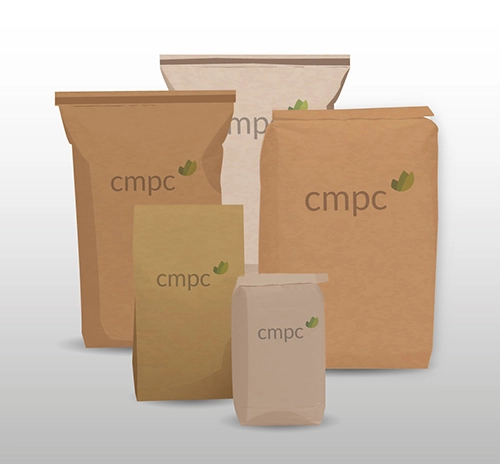CMPC, one of Latin America’s largest forest, pulp and paper groups, is rapidly reshaping its business model to position itself as a global supplier of sustainable fiber-based packaging.
Long recognized for its competitive pulp operations, the Chilean company is shifting its strategy toward packaging performance, circularity and value-added bioproducts derived from forest biomass.
This transformation is taking place in a challenging market environment. CMPC notes that long-fiber pulp remains under pressure, while short-fiber prices showed signs of stabilization toward the end of the quarter. To offset volatility in global pulp markets, the company is prioritizing operational efficiency, cost control and the expansion of downstream businesses—especially packaging and consumer products.
The transition is visible across CMPC’s corporate structure, long-term planning and product portfolio. Its 2030 roadmap identifies growth in Biopackaging, Wood and Pulp as strategic priorities and places innovation at the heart of product development. These commitments reflect CMPC’s goal to expand its presence in high-value fiber-based packaging markets and accelerate alternatives to plastics.
At the core of this shift is the Biopackaging division, dedicated to packaging solutions made from virgin and recycled fibers. Operating across Latin America and beyond, the division produces corrugated packaging, molded-pulp trays, virgin-fiber boxboard and kraft sack papers designed to combine product protection with recyclability and renewable content.
 CMPC Biopackaging Division
CMPC Biopackaging Division
Innovation plays a central role. CMPC places fiber-based and recyclable packaging at the center of its circular-bioeconomy agenda, ranging from molded-pulp applications to materials engineered to replace plastics in delivery, logistics and food packaging. Recent developments include water-repellent corrugated packaging designed to replace expanded polystyrene in the salmon industry, molded-pulp egg packaging made from recycled fibers and tea residues, grease-resistant kraft papers and collaborations on emerging technologies such as paper bottles and bio-based foams.
Circularity supports every step of this strategy. CMPC recovers post-consumer paper and cardboard at scale, and emphasizes that most raw materials across its Pulp, Biopackaging and Softys divisions come from renewable sources. The company is also advancing the use of lignin, nanocellulose, biocomposites, tall oil and other forest-derived byproducts to develop lower-carbon packaging solutions.
These ambitions are backed by industrial investments. The BioCMPC modernization program targets efficiency, energy performance and environmental improvements, while the Natureza project in Brazil is designed to expand pulp capacity in line with the growing demand for virgin and recycled fiber-based packaging.
By combining a dedicated packaging division, long-term growth commitments and emerging fiber technologies, CMPC has become one of the sector’s most advanced players in sustainable packaging. The group illustrates how a traditional pulp producer can reposition itself as an integrated leader in the forest-based bioeconomy.
Recent Financial Performance
CMPC’s latest quarterly results reflect this ongoing transition:
- Pulp: lower sales due to weaker international prices
- Softys: moderate revenue growth despite market challenges
- Biopackaging: quarterly improvement, though margins remain under pressure
Softys now accounts for nearly half of total sales, followed by Pulp and Biopackaging. Operating costs increased slightly due to higher volumes and the integration of a recent acquisition. Net-debt-to-adjusted-EBITDA rose but remains manageable, while gross debt increased moderately.
About CMPC
CMPC is a multinational pulp, paper, tissue and packaging company with operations in nine countries across the Americas and commercial offices in the United States, Germany and China. Founded 105 years ago, CMPC employs more than 27,000 people and focuses on sustainable fiber-based products across its industrial and consumer-goods operations.
























































